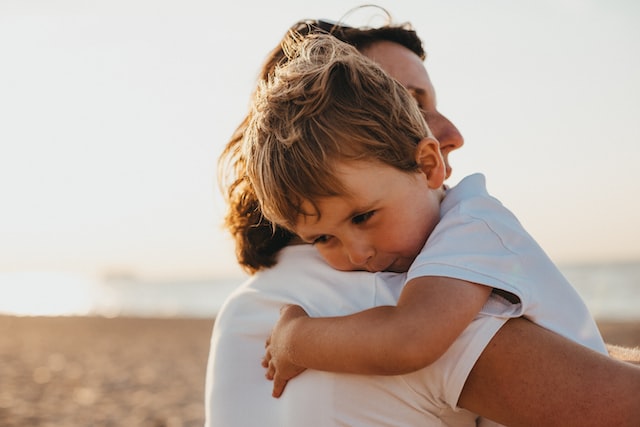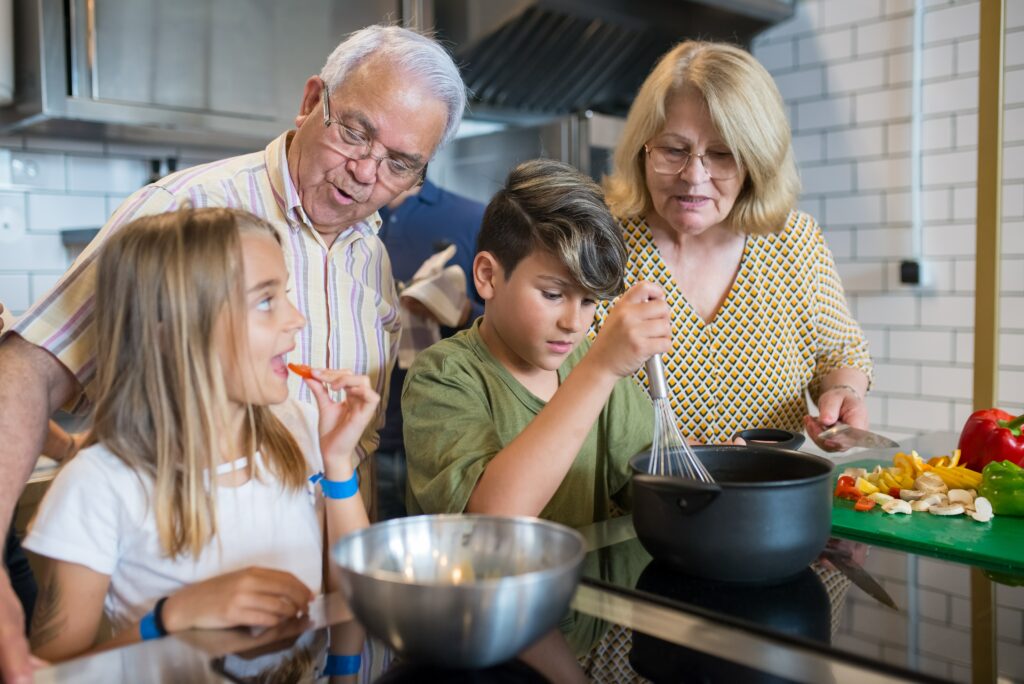Written by: Olivera Tolimir
If you’re a Serb who decided to start a family in a foreign country, one of the main questions about raising your children is probably: “What language should we use at home?”
Although it may not be intuitive, the answer is – speak Serbian. Here’s a list of the five benefits your child will experience if you speak Serbian at home.
Knowing Their Roots
A crucial part of every person’s identity is knowing their roots. If you’ve already moved to another country, your children wouldn’t have much contact with Serbian culture, history, or language. Not unless you provide it for them.
When your children speak another language in school and learn another country’s history, it’s easy for them to forget (or never hear about) Nikola Tesla, Mihajlo Pupin, Petar Petrovic Njegos, Vuk Stefanovic Karadzic, Dositej Obradovic, Karadjordje, Dusan Silni, Ksenija Atanasijevic, Mileva Maric, Draga Ljocic, Nadezda Petrovic, Milunka Savic, and many other notable people who should make them proud of their Serbian heritage. That’s why it’s not only significant to speak Serbian with your children but also to talk about Serbian history and culture.
Knowing their roots from an early stage will save your children time and effort in their adult age. Most people become more interested in their heritage once they’re older. The tricky part is it’s a lot harder to put energy into that kind of research when you have your own family, job, and mortgage.
General Advantages Bilinguals Posses (No, You Won’t Confuse Them!)

Immigrant parents are often worried about confusing their child with learning two languages. Even more often, Serbian immigrants don’t want to burden their children with learning Cyrillic script if the language of the country they live in uses the Latin alphabet. Let’s talk about the reasons to let this mindset go.
First of all, children’s brains are like sponges. Numerous pieces of research have proved how much easier it is for a child to learn a new language than for an adult. Children can differentiate sounds in one language from those in another much better than grown-ups.
Second, all children in Serbia learn two scripts at the age of 7-8 and don’t seem to have a problem with it. So, why would you think it’s more difficult four children born in a foreign country? They’re equally capable of learning two languages and two alphabets. Give your kids a chance, and the easiness with which they master them will surprise you!
Last but not least, there are many advantages of a bilingual brain! Bilingual children develop their brains in a different way than their monolingual friends. They’re better at self-control, planning, and solving problems. You can read more about it in an article published by Michigan State University Extension.
It Will Help Them Learn the Language of the Environment
This stance sounds counterintuitive. How learning to speak Serbian helps your kids ace a different language?! Easy.
Learning one language helps children master linguistic structure. So, if your child can already speak Serbian, it’ll be much easier for them to cope with the rules of another language. Let’s compare this situation with something more familiar to most people – sports.
Who do you think will be a better volleyball player: someone who has never practiced any sport, or a person who is a great tennis player? A tennis player is already familiar with coordinating a ball, serving, and striking. Of course, it will be easier for him to adjust that knowledge to a volleyball game. The same thing goes for languages. Now it seems more logical, right?
Better Relationship with You (The Parents)

If you’re the first generation of immigrants, the chance is you don’t use the language of the country you live in nearly as good as you speak Serbian. Because of this, you probably can’t express your thoughts and feelings so fluently in your second language. It is normal and expected!
When does this become a problem? It becomes a problem when you decide not to teach Serbian to your kids, but then try to emphasize certain shades of meaning talking to them. While communicating with your children, you may be unable to remember the correct term, and it will leave them confused.
Besides that, think about hearing the words “I love you” contrary to the “Volim te.” Which one do you feel in your heart, and which one is a learned phrase? Which one would you like to hear from your child one day?
Visiting Motherland and Being Able to Speak Serbian with Relatives

If you’ve decided to move to a different country, there’s a possibility you sometimes feel nostalgic. Even if you don’t particularly miss your home country, there’s a big chance you have parents or at least relatives there. These are the main reasons Serb immigrants, like most others, come home for holidays.
Coming home for holidays is easy while your children are relatively small and don’t care where they are. But as soon as they become more conscious, they won’t be willing to go to a place where everything feels distant.
To avoid children not being willing to visit Serbia, you must speak Serbian with them and teach them basic stuff about our country. Otherwise, they’ll find it imposed onto them to go to some country where they don’t understand anything and won’t even be willing to learn.
Also, if you don’t speak Serbian with them, your kids won’t be able to bond with their relatives in Serbia. It’s complicated enough that the Serbian mindset is probably pretty different than what they’re used to. You don’t need them struggling to understand each other when talking about basic stuff.
In the internet era, it’s great that you don’t have to be your child’s only bond to the mother tongue. They can speak Serbian with their grandparents and relatives through video calls. That way they won’t find it strange when you visit them!
If you want to give your child a contact with the Serbian language on a regular basis, reach out to us and we can help you with that! Your child can learn Serbian on private classes or in a small group. Look at the types of lessons here.



